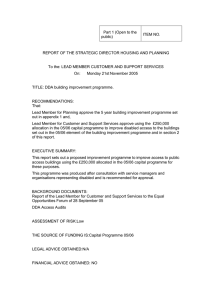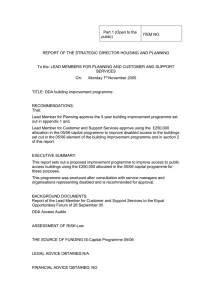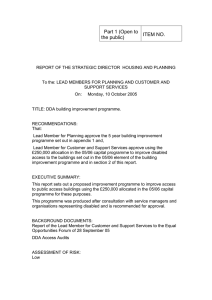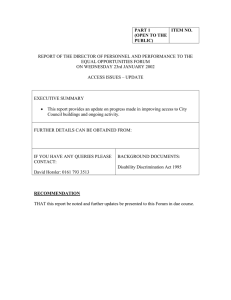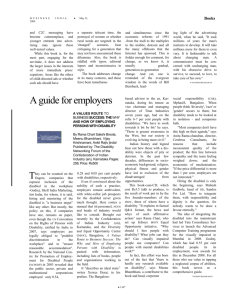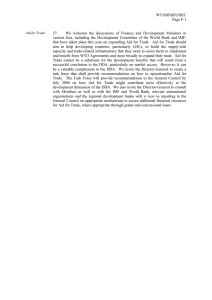Year 7 Diversity - Discrimination
advertisement
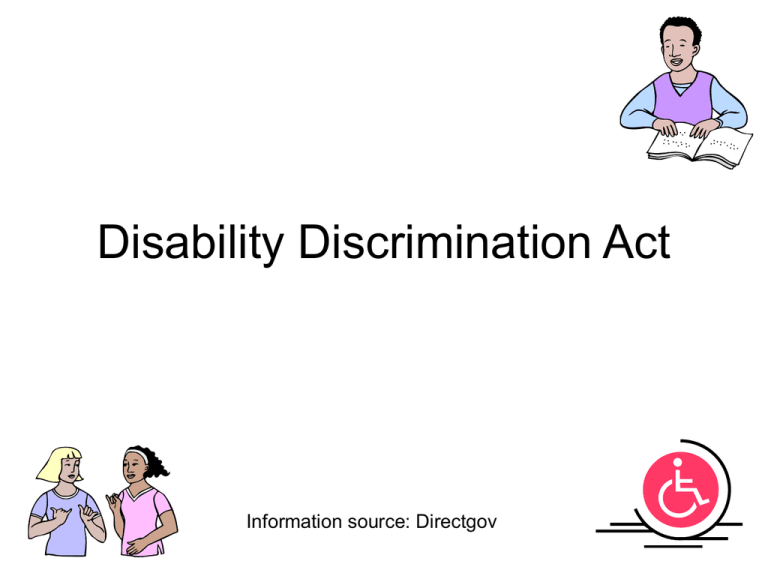
Disability Discrimination Act Information source: Directgov What does disabled mean? The Disability Discrimination Act (DDA) defines a disabled person as someone who has a physical or mental impairment that has a substantial and long-term adverse effect on his or her ability to carry out normal day-to-day activities. Everyday life • • • • The DDA gives disabled people important rights not to be discriminated against: in accessing everyday goods and services like shops, cafes, banks, cinemas and places of worship in buying or renting land or property in accessing or becoming a member of a larger private club in accessing the functions of public bodies, like the issuing of licenses for example Employment • • • • • • • • Under the DDA, it is unlawful for employers to discriminate against disabled people for a reason related to their disability, in all aspects of employment, unless this can be justified. The Act covers things like: application forms interview arrangements proficiency tests job offers terms of employment promotion, transfer or training opportunities work-related benefits such as access to recreation or refreshment facilities dismissal or redundancy Disability Discrimination Act Also covers: • Health • Education • Mental health • Motoring • Transport Activity. • Read section 2 of the news article • In small groups use the De Bono thinking hats that were introduced earlier in the module and consider the view points of: – The presenter – Parents Key Questions Do you think that Cerrie Burnell has the qualities and attributes to be a children’s television presenter? Do you think the parents that complained are discriminating against Cerrie Burnell?
